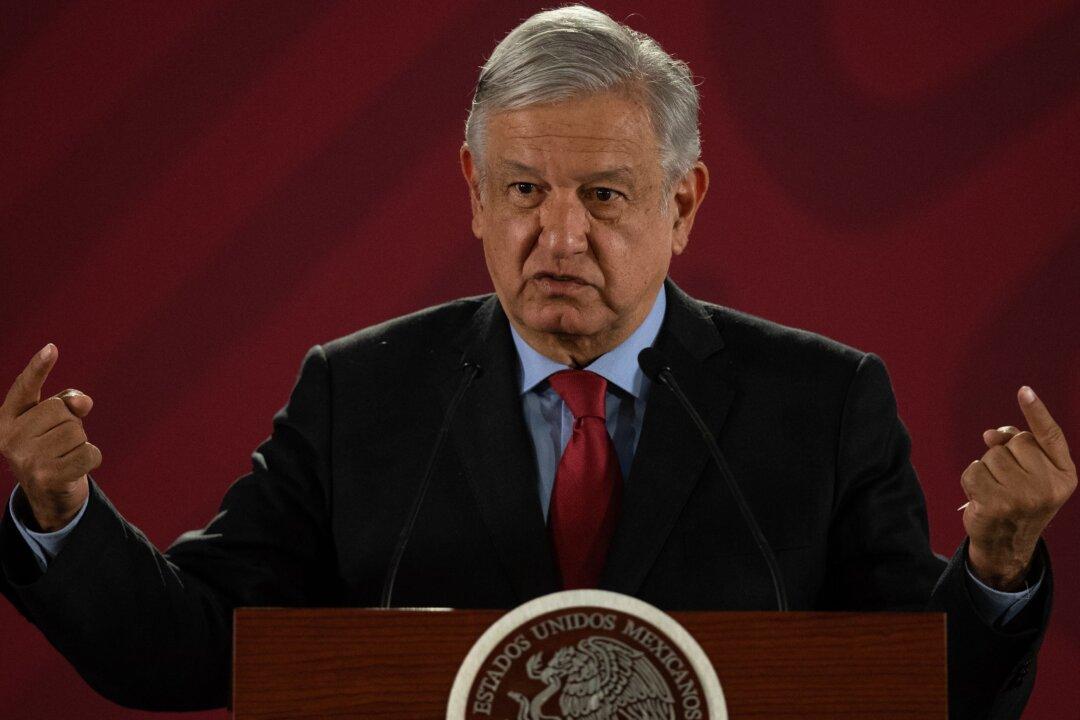Mexican President Andrés Manuel López Obrador said that Mexico has to regulate the flow of migrants from Central America who travel through Mexico to cross into the United States illegally after U.S. President Donald Trump on March 29 threatened to shut the border.

Mexican President Andres Manuel Lopez Obrador gestures during his daily morning press conference at the National Palace in Mexico City on March 26, 2019. Pedro Pardo/AFP/Getty Images

Petr Svab
reporter
|Updated:



